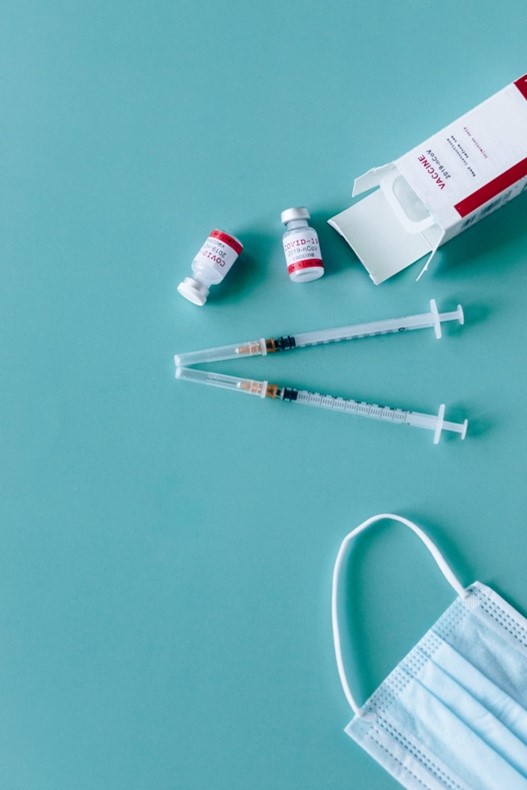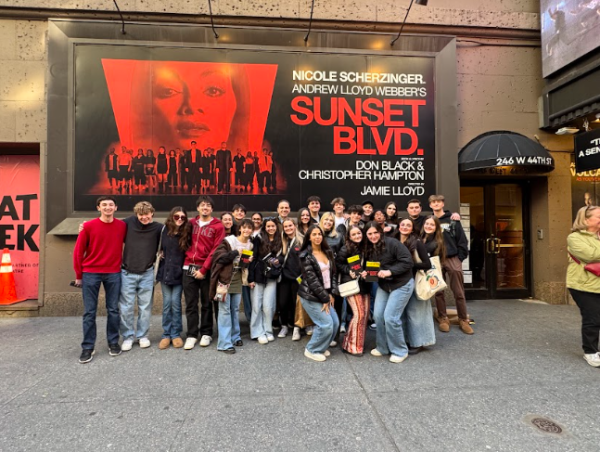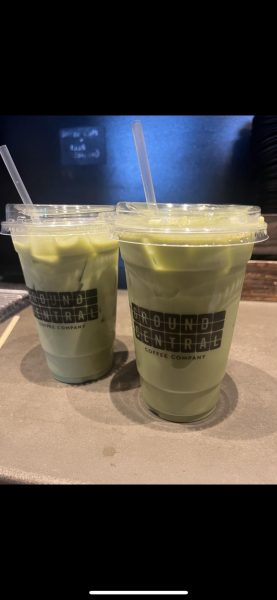Pfizer Vaccine Approved for Ages 12-15
Photo by Nataliya Vaitkevich from Pexels
The Pfizer vaccine recently became approved to distribute to children aged 12-15.
The Center for Disease Control and Prevention (CDC) approved the distribution of the Pfizer vaccine to children aged 12-15 on Wednesday, May 12. About seventeen million children — five percent of the United States’ population– are newly eligible for the vaccine. Two days earlier, the Food and Drug Administration approved the use of the Pfizer vaccine on an emergency use basis. In a May 12 CNBC article entitled “CDC OKs Pfizer’s Covid vaccine for use in adolescents, clearing way for shots to begin Thursday,” President Joe Biden stated, “[The approval for this age group is] one more giant step in our fight against the pandemic.” One of the newly eligible Americans, Gianna Taverna, a freshman, said, “In the beginning, I did think eventually they would develop a vaccine for this virus. The whole set up for getting vaccinated was very efficient, and everyone at the site was very helpful and nice. The process was also very quick for me, and they knew how to guide everyone and accommodate everyone. After I heard I could get vaccinated, I was very grateful and wanted to get vaccinated. I am so happy that I got my first dose of the vaccine and can’t wait until we can get back to normalcy!”
The CDC stated that there were no significant effects associated with the Pfizer vaccine shown in the 2,000 12–15-year-olds who participated in the clinical trial. The vaccine was also found to be 100% effective in the clinical trial with young participants. Of the participants, 91% were reported having minor side effects. Commonly reported side effects were pain at the site of injection and in joints and muscles, tiredness, headache, chills, and fever. Aside from pain at the site of injection, many of these side effects were experienced after the second shot.
According to the Miami Herald (miamiherald.com), children ages 12-15 will receive the same dosage as adults, similarly to most vaccines. According to the FDA, they will receive two doses of the vaccine, three weeks apart. In a May 11 Miami Herald article entitled “Will kids get the same Pfizer COVID vaccine dose as adults? Here’s what to know,” Dr. Michael Smith, a pediatric and infection disease specialist involved in the pediatric trials, stated, “However, once we get younger than [12 years old], we have to slow things down a little bit and make sure we have the right dose that is safe and effective for younger children.”
Many experts say that being able to vaccinate children will help the nation reach herd immunity. Children make up about 20% of the total US population. Between 75% and 85% of the US population needs to get vaccinated to attain herd immunity. Although, according to CNBC, more experts are saying that attaining herd immunity is looking unlikely as variants of the virus spread. As of Tuesday, May 11, more than 150 million Americans have received at least one does of the vaccine. About 115 million American adults are fully vaccinated, according to data collected by the CDC.
In a poll conducted by the CDC, 45%-60% of parents said they wanted their children to receive the Covid-19 vaccine. Many parents have concerns regarding safety, the time it took to develop the vaccine, and not having enough information. In a CNBC article, Dr. Janet Woodcock, FDA commissioner, said that the FDA “undertook a rigorous and thorough review of all available data” before approving the vaccine for use in adolescents. Freshman Mindy Leu is a member of the 12-15 age range who was recently able to get vaccinated. She shared, “I believed there was going to be a vaccine, but I didn’t think it would be so fast. Getting the vaccine was so fast and easy. It felt pretty euphoric. When I heard there was a vaccine, I was eager to get it!”
Many view the vaccine as a step towards returning to normalcy. Mary Costello, a freshman, said, “I didn’t really know [if there was going to be a vaccine] because those quarantine days are really a blur to me because of how crazy and shockingly fast everything went down. But I’d have to say I thought it would be a while until they eventually made one because at that time, it felt like this was never going to end, and a lot of things have changed. So, yes, I knew they were going to make one, but I just didn’t know when. I was really happy [to hear about the eligibility to get the vaccine] because all I keep thinking is that with each person getting vaccinated, we are one step closer to this whole ordeal being over.” Bridget Maloney, a sophomore, added, “In the beginning of Covid, I assumed a vaccine would have to be made, but I had no idea how long it would take or when it would be accessible. When I found out I was able to receive one, I was so relieved that I could stay safe from the virus and start to return to normal life.”























